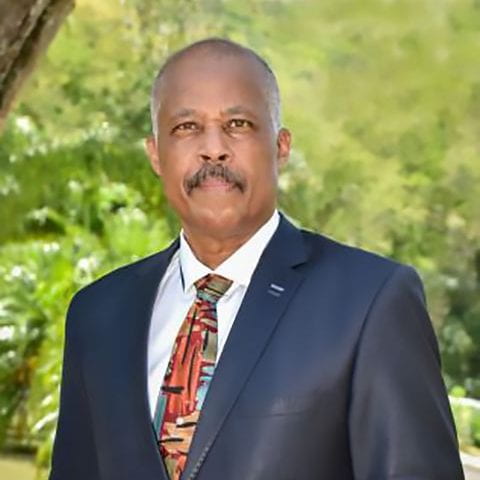Sir Hilary Beckles

March 24-28, 2025
SCHEDULE OF EVENTS
“White Women and the Atlantic Slave System“
Tsujimoto Perspectives in Global Development seminar series
Wednesday, March 26, at 12:20-1:10pm
101 Bradfield Hall and via Zoom
Open to all.
Abstract: The intersection of race, class and gender in the conception and design of the Atlantic Slave system continues to attract multidisciplinary research interest. The Caribbean, and the southern US colonies, provide sharp contrast in some areas but share common structural and social aspects. The presence of white women, bonded and free, was central to the roll out of chattel enslavement as a race-specific order that targeted Africans. The social interactions of white women and Africans, male and female, challenged legislators and provided the core context for continuous refinement of the rules of racial engagement. Indeed, the specific legal architecture of black enslavement (in particular the slave code) was principally a response by white males to protect property rights in production and reproduction. By defining the role and function of white women as carriers of the seed of freedom the slave based order was rendered economically sustainable.
The Tsujimoto Perspectives in Global Development seminar series is cosponsored by the Dept. of Global Development, Dept. of Natural Resources and the Environment, and Charles H. Dyson School of Applied Economics and Management.
West Campus student discussion with Sir Hilary Beckles
Wednesday, March 26, at Alice Cook House
5:00pm
Open to all.
For circulation: “The Case for Reparations in the Caribbean”
Hosts: Chantal Thomas (Vice Dean and the Radice Family Professor of Law, Cornell Law School; Director of the Cornell Center for Global Economic Justice; and Faculty Director for the Clarke Initiative for Law and Development in the Middle East and North Africa)
Bassel Khoury (House Assistant Dean, Alice Cook House)
“The Idea of White Slavery: The West Indies Experience in the 17th Century”
An A.D. White Professors-at-Large keynote public lecture
Thursday, March 27, at 4:45pm
Rhodes-Rawlings Auditorium, Klarman Hall and via Zoom
Open to all. A reception will follow in Klarman Atrium.
Abstract: The establishment of colonial dispensations on the Caribbean frontier by rival European imperial powers was conceived and implemented within an ideological framework that sanctioned and mandated the extensive use of servile labour. The creation and survival of economic enterprises across imperial borders in mining, agriculture, distributive trades and services, depended upon the availability of coerced unfree labour. Entrepreneurial thinking, likewise, was constrained by a set of specific economic references in which the attainment of growth and profitability, and a stable social order, were seen as contingent upon the supply and organization of unfree labour.
It was clear to all with an interest in the colonial mission that by the seventeenth century the options as far as labour use was concerned were reduced to three basic forms. These choices were the reduction of the conquered indigenous population to servitude on lands apropriated from them, the transfer or surplus labour from the imperial centre to the colonial periphery under set contractual conditions, and the trading in chattel labour from the already well established African market. Also, these forms were considered discrete in the sense that their structures were clilnically demarcated by racial differences – heightened by clearly distinct methods of recruitment.
About Sir Hilary Beckles
Sir Hilary Beckles is the eighth vice chancellor of The University of the West Indies-UWI and a distinguished academic, international thought leader, United Nations committee official, and global public activist in the field of sustainability, social justice and minority empowerment. He is president of Universities Caribbean, chair of the Caribbean Examinations Council, chair of the CARICOM Reparations Commission, and advisor on sustainable development to former United Nations secretary-general Ban Ki-moon. He was knighted by the government of Barbados in 2007.
In 2021, Sir Hilary received the Martin Luther King Jr. Peace and Freedom Award. In 2022, he was elected as an Andrew D. White Professor-at-Large at Cornell University. Also in 2022, Sir Hilary presented an Einaudi Distinguished Speaker Series lecture at Cornell. In 2024, he was appointed as Chairman/Chancellor of the United Nations University (Tokyo), beginning in May 2025.
Sir Hilary has published over 100 peer reviewed essays in scholarly journals, eight plays, and over 13 books on subjects ranging from Atlantic and Caribbean History to gender relations in the Caribbean, sport development, and popular culture. The breadth of Beckles’s scholarship and its generalizability to many fields has captured the interests and imaginations of a vast array of audiences worldwide.
A highly sought-after speaker, Sir Hilary has lectured extensively throughout Europe and Asia. Beckles received his higher education in the United Kingdom and graduated in 1976 with a B.A. (Hons) degree in Economic and Social History from The University of Hull, and a Ph.D. from the same university in 1980. Sir Hilary serves as an A.D. White Professor-at-Large at Cornell 2022-28.
All events are cosponsored by the Dept. of History and the Latin American and Caribbean Studies (LACS) Program.
Judith Byfield (Professor, Dept. of History) serves as faculty host.
Ernesto Bassi (Associate Professor, Dept. of History) serves as faculty co-host.

